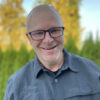Saul of Tarsus made people suffer for the name of Jesus. Young and dedicated, it was his delight to track down followers of Jesus to extinguish their affront to the faith of his fathers. Their witness that Jesus was the risen Messiah rankled him (Acts 7:58-8:1; 9:1-3).
Saul was going to Damascus – that city still in the news – to bring back more Jewish followers of “The Way,” only to be intercepted by the risen Jesus himself. He was flattened. Blinded by the light, he needed to be led like a toddler to Damascus. His life was starting again. He sat in the dark, refused food or drink, and prayed.
God answered. He poked a Christ-follower named Ananias – the type of believer Saul had traveled to Damascus to arrest. God had pinned Saul’s address on Straight Street and was sending Ananias to deliver the answer to his prayers. Saul was to be God’s instrument to do the unthinkable: the Jewish persecutor of Christians would be God’s instrument to proclaim Jesus’ name among the Gentiles. “I will show him,” said the Lord, “how much he must suffer for my name” (Acts 9:16).
The call stuck. Saul – who would become Paul, the writer of nearly half the New Testament – would surrender his life from this moment for the glory of Jesus. He, who once made others suffer for the name of Jesus, answered the bell himself.
Paul would write the emerging Christian church in the Gentile city of Ephesus: “In him we were also chosen, having been predestined according to the plan of him who works out everything in conformity with the purpose of his will, in order that we, who were the first to put our hope in Christ, might be for the praise of his glory” (Ephesians 1:11-12).
This word is for believers enveloped into the community of faith, the church. Paul lived his life for the glory of Jesus; he called the church to live for Jesus’ glory too. The communion of saints is called to Jesus – as Paul had been on the highway to Damascus and as you are wherever you met him – in order to join him in doing his will in the world. Jesus calls us to him to live for him.
Spiritual growth begins in a call to the glory of Jesus. But, spiritual growth sprouts toward fruitfulness – toward a ministry, calling, and purpose. We all must live for something. We are not only called to Jesus; we are called to live for the glory of Jesus. To be reconciled to God in Christ reorients us as those living for the praise of his glory.
We must ask, “What, or who, am I living for?” Saul had time to process this as he sat in the dark in Damascus. Have you had your dark moment of assessment? Has your church? Anyone, or any community, called to Jesus will be led to ask: What, or who, are we living for? The Spirit will stir – and sometimes upset or shake us – with that question. A genuine desire to grow spiritually and to make life count will result in this kind of spiritual confrontation of what, or who, life is for.
Keep in mind, Saul believed wholeheartedly that he was living for the right purpose before he met Jesus on that fateful road trip. We can completely believe we are good guys doing right and noble things only to be poked in the eye by the finger of Jesus. Even the right and noble thing can be for self-glory or the glory of a cause. Jesus will challenge that. He will find a way to have us deeply consider what or who we are living for.
So, slow down with that question. Pray deeply into that question. The ambassadorial impact of your life toward the reconciling purposes of God depends on your honest answer.
About


